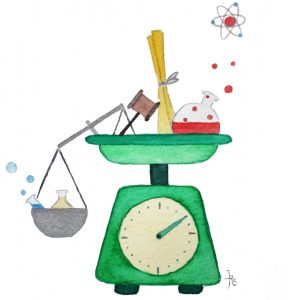“Now I don’t even consider myself a scientist. I’m a lawyer. But when I started, I was a scientist first.”
- Gaby L. Longsworth, Ph.D.
Gaby Longsworth earned her Ph.D. in human genetics and molecular biology from The Johns Hopkins University after working in the Department of Cell Biology in Susan Michaelis’ laboratory. Longsworth has worked as a patent attorney for more than 17 years, and she is currently a director of the biotechnology/chemical group at a law firm in Washington, D.C. As an academic scientist, a career in law seems completely different from my day-to-day work life. As such, I was curious to hear more about how a person trained in academic science has found a successful, fulfilling career in patent law.
Toward the end of her time in graduate school, Longsworth began looking into careers outside of basic science by reading, talking to people and attending information seminars offered by the Johns Hopkins Professional Development Office. After obtaining her Ph.D., she worked at a law firm as a paralegal and then as a student associate, which involved working full time and going to law school in the evenings. She described to me the career trajectory from student associate, to associate, to nonequity partner, and eventually to her current position as a full equity partner. Explaining the process in terms that I could relate to, she told me that being a full equity partner is somewhat analogous to being a tenured faculty member.
Pursuing a career in law after extensive training in science sounded like quite a transition. But once she made

the switch, she says she never looked back. When I asked her what the best part of her job was, she was hard-pressed to tell me just one. She talked about how she enjoys the opportunities to train junior colleagues — similar to a faculty member in academia — and travel for work, including to the Netherlands and Australia. “I like the challenge of it, she adds. “We’re at the forefront of discovery.”
Does a career that combines science and law sound interesting to you? If you’d like to pursue a career in patent law without going to law school, you can become a patent agent after passing the patent bar exam. If you decide to attend law school, other areas to consider, particularly with a background in science, include environmental law, medical malpractice, mergers and acquisitions, and FDA law.
Longsworth said her job involves research, written and oral communication skills, being detail-oriented, and dealing with the stress associated with job demands. “Much of succeeding in a law firm is people skills,” she explains. “I think there is the perception that sometimes, as long as you’re the brightest and you work the hardest, that will be sufficient to make it, but that’s not true.”
The advice she gives junior colleagues is to ask questions, suggest ideas and get involved in social functions. Borrowing from The Curmudgeon’s Guide to Practicing Law by Mark Herrmann, her advice is “don’t be a potted plant.” In other words, be proactive about figuring out what and how you can contribute to your environment. I think this is advice that could also benefit those of us in other fields.
Related Content
Read more about Gaby Longsworth and the Biomedical Careers Initiative in our Fundamentals newsletter.
